Fermented foods like sauerkraut and yogurt are loaded with beneficial bacteria. When you eat them, you introduce beneficial bacteria into your digestive system, resulting in significant health benefits. These beneficial bacteria come from specific foods that our team of dietitians recommends you aim to eat several times a week. Here’s what to expect if your diet is rich in fermented foods:
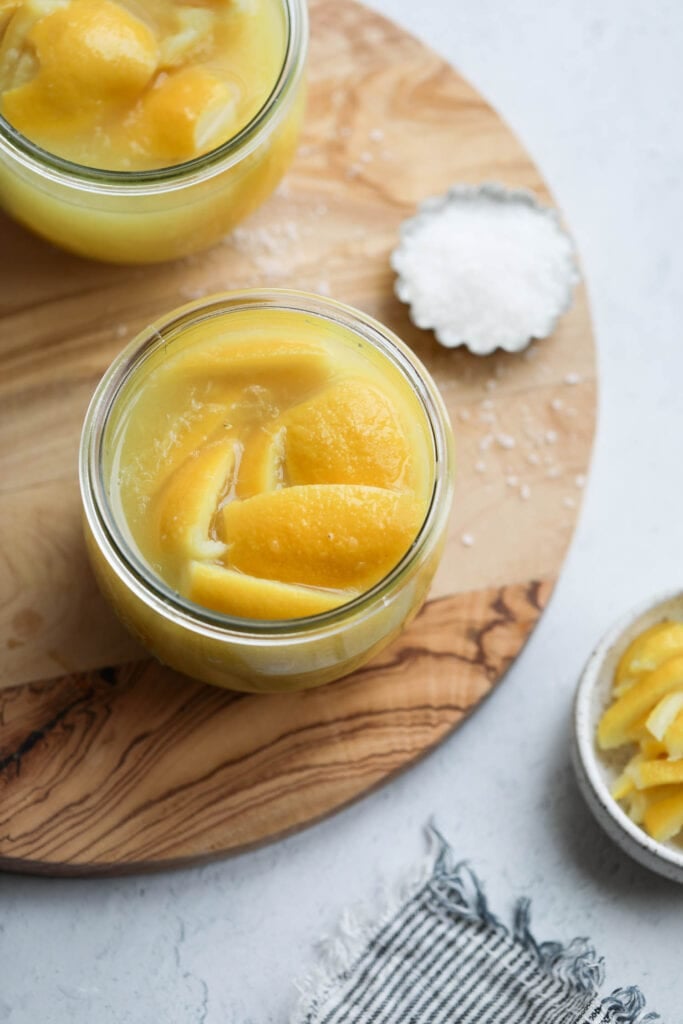
1. Gut Health
Fermented foods support gut health by easing digestion and promoting a healthy balance in your gut microbiome. This can have beneficial effects for people who suffer from constipation, diarrhea, or other digestive complications.
Probiotic microbes from fermented foods can ease digestion by helping to break down fibers in foods, which makes it easier for your body to uptake vitamins and short-chain fatty acids (SCFAs). They also contribute to a thriving gut microbiome (the community of beneficial bugs and bacteria living inside your gastrointestinal tract). These healthy bacteria are diminished by things like stress, illness, and an abundance of foods that contain chemicals, artificial sweeteners, and highly processed ingredients. That’s why eating more probiotic-rich foods can help maintain a balanced gut.
2. Reduced Inflammation
Fermented foods can help tame out-of-control bodily inflammation.
Acute inflammation is your body’s short-term defense mechanism against infection and disease, such as your body’s response to an injury (like a sprained ankle), foreign substance (like a sliver), or an illness (like a bacterial infection). Conversely, chronic inflammation is prolonged and problematic, which can damage healthy cells, organs, and tissues, and even damage DNA.
If chronic inflammation is not addressed by eating more anti-inflammatory foods and reducing the root causes of inflammation, it can lead to life-threatening illness and chronic disease.Fermented foods contain natural anti-inflammatory bioactive compounds generated through the fermentation process, which helps create probiotics and prebiotics. A consistent intake of anti-inflammatory compounds can help reduce chronic inflammation over time.
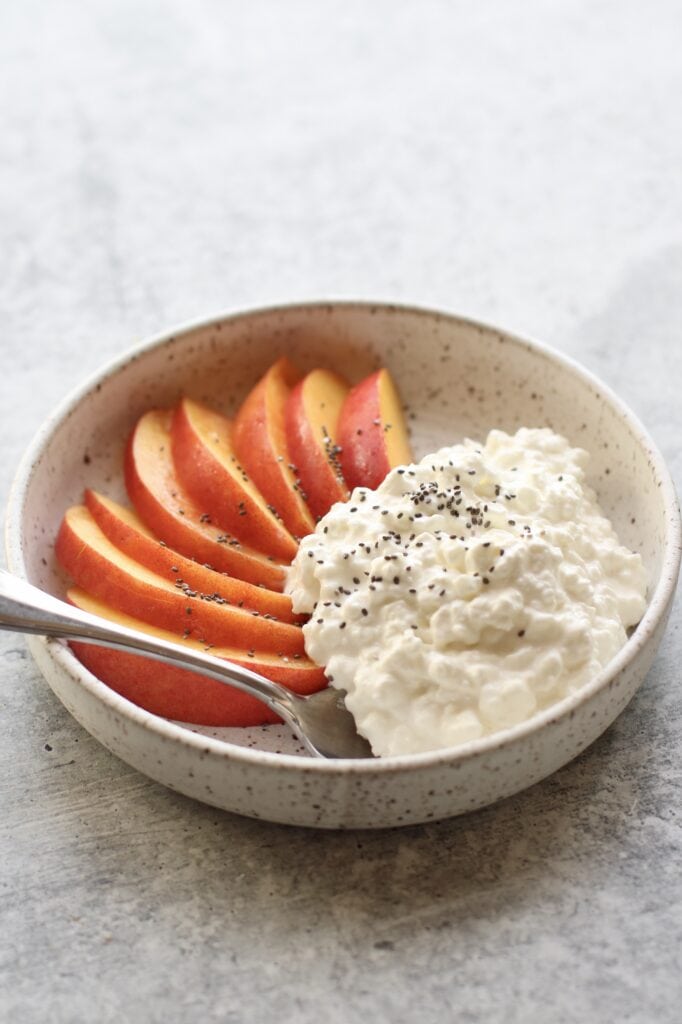
3. Lower Risk of Chronic Disease
Because they help reduce inflammation, fermented foods can also help reduce the risk of chronic diseases, such as cardiovascular disease, type 2 diabetes, and chronic arthritis.
Recent research shows that probiotics from fermented foods may have a significant impact on heart health by slowing the development of plaques that lead to heart disease. Further, fermented foods can help reduce CVD risk by helping to reduce LDL cholesterol, blood pressure, and total cholesterol. A review of many studies shows that fermented foods can help reduce the risk and progression of prediabetes and type 2 diabetes. This happens because these probiotic-rich foods increase your body’s antioxidant capacity and reduce inflammation while also helping to lower blood glucose and increase insulin sensitivity.
4. Better Immunity
Eating fermented foods can help build strong immunity and keep you safe from diseases that enter the body through pathogens.
When the probiotics in fermented foods (the good bacteria) take up temporary residence in your intestines, they produce vitamins. Those microorganisms help strengthen your immune system and crowd out the pathogenic or disease-promoting bacteria (the bad bacteria). Additionally, the short-chain fatty acids produced by the bacteria help maintain the integrity of the cells lining your digestive tract. Bacteria and viruses then have a lower chance of thriving in your body, and you have a reduced risk of getting sick.
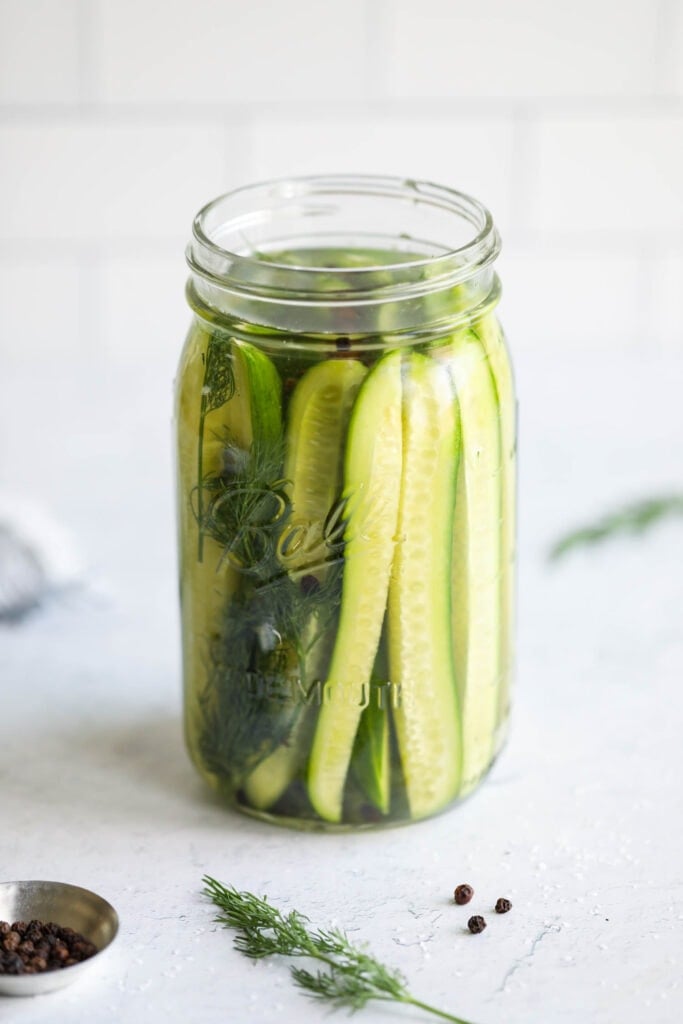
5. Weight Management
Consistently eating fermented foods has been associated with weight loss, reduced obesity, and maintaining a healthy weight. However, these effects are only present with fermented foods as part of an overall health plan that includes movement and stress reduction.
This is likely due to several mechanisms triggered by probiotics in your gut, including:
- lower bodily inflammation — increased cortisol levels (a response to inflammation) have a correlation with higher amounts of belly fat
- the increased availability of short-chain fatty acids — these can improve metabolism and help increase the burn of calories and fat
- the release appetite-regulating hormones — probiotics trigger the release the appetite-suppressing hormones like glucagon-like peptide-1 (GLP-1) and peptide YY (PYY)
Getting Fiber On A Grain-Free Diet
Wondering how to get enough fiber when eating a grain-free diet or reducing grains? Read How to Get More Fiber on a Grain-Free Diet.
6. Improved Mental Health
The gut-brain connection shows that our gut microbiota and digestive systems have an impact on our brain functions, including memory, cognition, anxiety, and depression. Because of their ability to improve microbiome health, probiotics may provide brain-protective benefits, as well.
Studies show that a dysbiosis of beneficial gut bacteria has been associated with mental disorders, including depression, anxiety, dementia, Parkinson’s disease, and other neurodegenerative disorders. However, consistent dietary intake of fermented foods provides beneficial microbial strains, metabolites, and other bioactives that have a therapeutic effect on mental health.
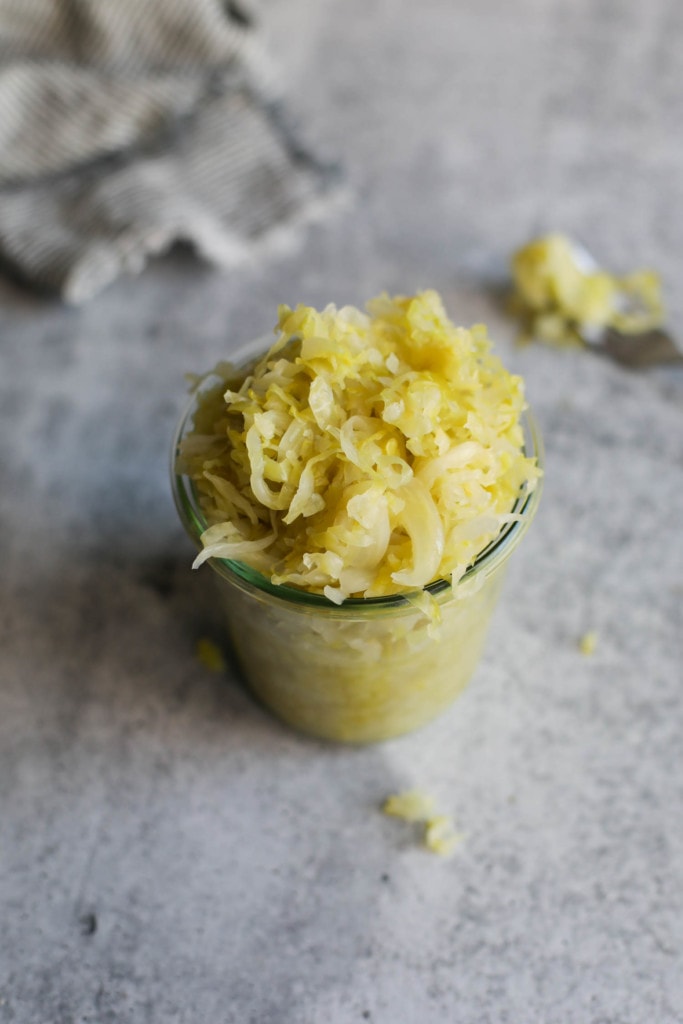
What Are Fermented Foods?
Fermented foods are foods that are preserved through the process of fermentation.
Fermentation, or more specifically lactofermentation, is the process of using bacteria or yeast to convert sugars or starches (carbohydrates) into acids, gasses, or alcohol. One of the best examples of this is using yeast to leaven bread or lactic acid bacteria to preserve vegetables.
Lactic acid bacteria (LAB), or Lactobacilli, are naturally present on the surface of fruits and vegetables. They also happen to be naturally occurring on your skin and in your gastrointestinal, urinary, and reproductive tracts.
These bacteria, when present in an anaerobic environment (one without oxygen), feed on the sugars and starches in vegetables or fruits to produce lactic acid. This lactic acid then lowers the pH, killing off harmful (pathogenic) bacteria, while also preserving the food without the use of vinegar or other added preservatives.
This process of fermentation allows us to safely produce sour and tangy foods like sauerkraut, kimchi, yogurt, and kombucha, just to name a few. Fermented foods stay well-preserved, contain plenty of probiotic strains, and produce their own enzymes, which help you digest your food better and supply a healthy dose of B vitamins and omega-3 fatty acids.
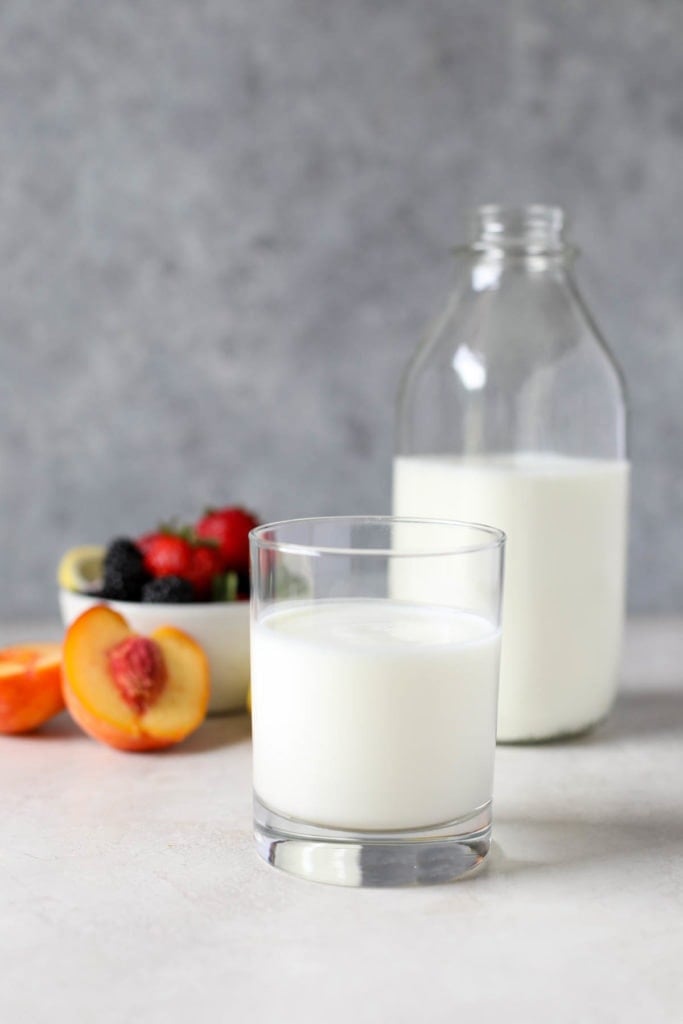
Fermented Foods List
Fermented foods primarily consist of dairy products, condiments, drinks, cheeses, and flavoring ingredients. They are almost always found in the refrigerated section of the grocery store because they contain live beneficial bacteria that thrive better under cool conditions.
They tend to have a tangy taste to them, which is created by the fermentation process, and they are rich sources of probiotics.
Fermented dairy foods:
- Yogurt
- Kefir — which is most often made from milk, though nondairy versions made from water or coconut water also exist.
- Buttermilk
- Cultured cottage cheese — look for brands that contain live cultures.
- Some cultured soft cheeses — such as some Brie, Swiss, provolone, Gouda, cheddar, Edam, and Gruyère.
Fermented vegetables:
- Pickles — to get the most probiotics, look for unpasteurized fermented pickles sold in the refrigerated section at stores. If vinegar or “pasteurization” is listed on the label, chances are there are few to zero probiotics present.
- Sauerkraut — this condiment is made from fermented cabbage and is rich in vitamin C and K. Same as pickles, look for fresh kraut sold in the refrigerated section (or make your own). Canned or jarred kraut sold in the inner aisles are unlikely to contain probiotics.
- Kimchi — a flavorful condiment used in Korean foods that is a mix of spicy fermented Chinese cabbage and peppers.
- Pickled vegetables — many types of vegetables can be fermented, such as pickled carrots, bell peppers, green beans, asparagus, cauliflower, onions, and mushrooms. These tangy-sour preserved vegetables make a flavorful addition to charcuterie boards, salads, bowls, and sandwiches.
Other fermented foods:
- Kombucha — fermented tea. Look for lower sugar options for optimal benefits without loading up on sugar.
- Sourdough bread — though not all sourdough breads are created equal, and sourdough bread doesn’t contain live cultures.
- Miso — fermented soybean paste used in Japanese cooking to give depth of flavor to soups, sauces, dressings, stir-fries, and marinades.
- Preserved lemons — used in Moroccan, Middle Eastern, North African, and South Asian cuisines as a tangy condiment.
- Tempeh — a fermented vegan protein, sometimes used as a meat replacement, that’s most often made from soybeans. It’s often marinated and sliced or shaped to make vegan versions of tacos, sandwich filling, bacon, and burgers.
- Natto — cooked fermented soybeans, popular in Japanese cuisine, often served as a breakfast food with rice.
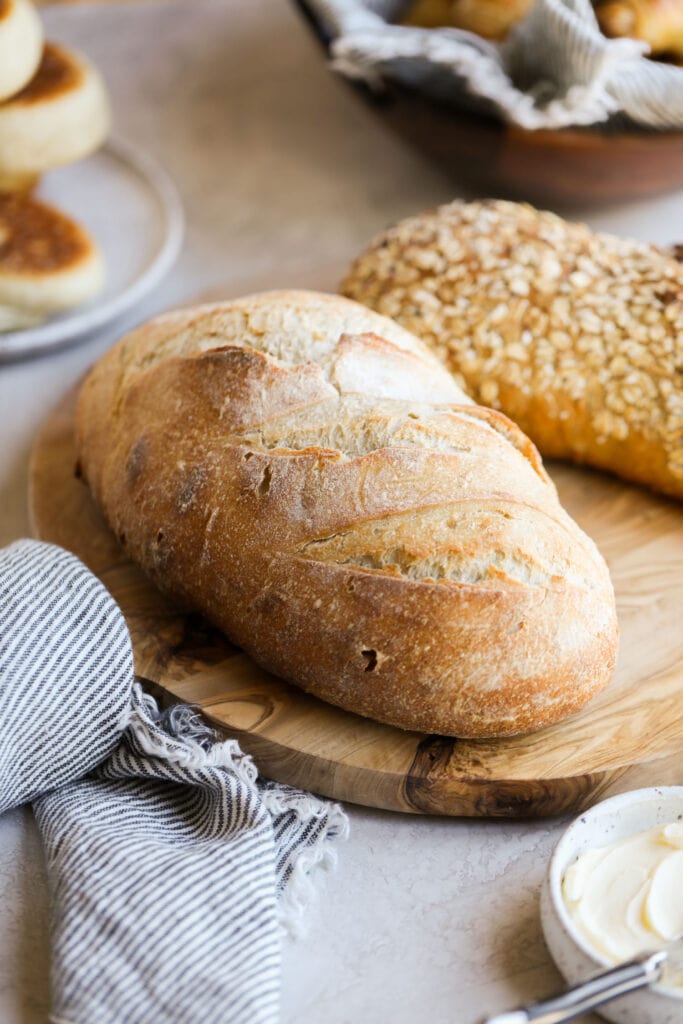
Getting Probiotics During Pregnancy
Fermented foods and probiotics are great for a healthy pregnancy. Read Top 10 Foods for a Healthy Pregnancy
Frequently Asked Questions
Lactofermentation is the process of using bacteria or yeast to convert sugars or starches (carbohydrates) in foods into acids, gasses, or alcohol. It is used to preserve food longer, increase shelf life, and introduce a pleasantly tangy flavor. A benefit of lactofermented foods is that they contain probiotics.
Yes, as long as you’re eating properly fermented foods and don’t have a chronic health condition that prohibits it, you can definitely eat them every day! As dietitians, our entire team recommends having fermented foods at least several times a week.
The healthiest fermented food is the one that you’ll eat most often. All fermented foods provide similar good health benefits, thanks to their abundance of probiotics, so it’s a good idea to add as many fermented foods to your weekly menus as you can. If you like a certain fermented food, you’re more likely to get in the habit of eating it regularly.
Some people should avoid or limit their intake of fermented foods due to potential risks. Those include:
– people with a histamine intolerance — people who lack an enzyme called diamine oxidase (DAO)
– someone with a weakened or compromised immune system — such as someone with HIV/AIDS, cancer patients undergoing chemotherapy, and organ transplant recipients
– people with digestive disorders — such as someone with irritable bowel syndrome (IBS) or inflammatory bowel disease (IBD) should consult a registered dietitian or their healthcare team. In many cases, eating or even increasing fermented foods is a positive strategy for someone with digestive health disorders, though some people with extremely sensitive digestive systems may experience extreme gas and bloating.
Both kefir and kombucha are fermented foods that contain beneficial probiotics, and one is not necessarily better than the other. Kefir generally contains a higher amount of calories and may contain a bit more sugar than some kombuchas, but read the nutrition facts panel to verify sugar grams.
Kefir is most often made from milk, so it does contain dairy and would not be appropriate for someone with a milk allergy or lactose intolerance (though the process of fermentation reduces the overall lactose concentration of dairy products). Kefir can also be made from non-dairy liquids, such as water, fruit juice, or coconut water, which would be 100% lactose free.
Kefir made from milk does contain some nutrients that kombucha does not, including calcium and potassium. Kombucha does contain some caffeine since it is made from fermented tea, though levels are generally low (15 mg or less per serving).
Some people experience temporarily increased bloating from eating fermented foods. However, over time, consistently eating probiotic foods or taking a probiotic supplement is associated with improved digestion, including reduced bloating.
Fermented foods may help contribute to weight loss as part of an overall weight loss plan. This is because they help reduce bodily inflammation and may improve metabolism and release appetite-regulating hormones.
For ultimate success, we highly recommend reading the tips in the full blog post above. All photos and content are copyright protected. Please do not use our photos without prior written permission. If you wish to republish a recipe, please rewrite the recipe in your own unique words. Link back to the source recipe here on The Real Food Dietitians. Thank you!
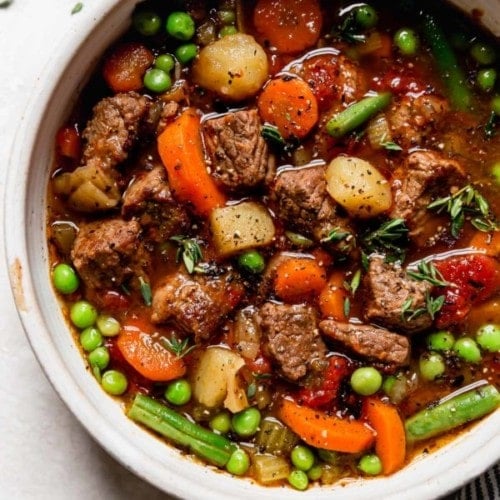
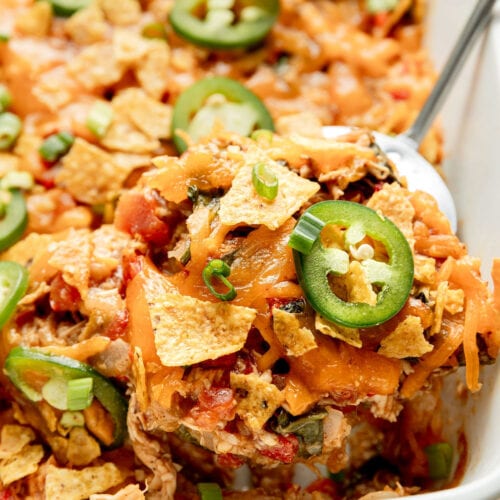
I’ve had problems with candida over the years, and I’ve always been told to avoid fermented foods, as these can feed candida. Do you agree with this? Is the probiotic benefit bigger than the candida correlation?
Definitely something you would want to discuss with your health care team. All cases are different and it can depend on the severity of the condition.